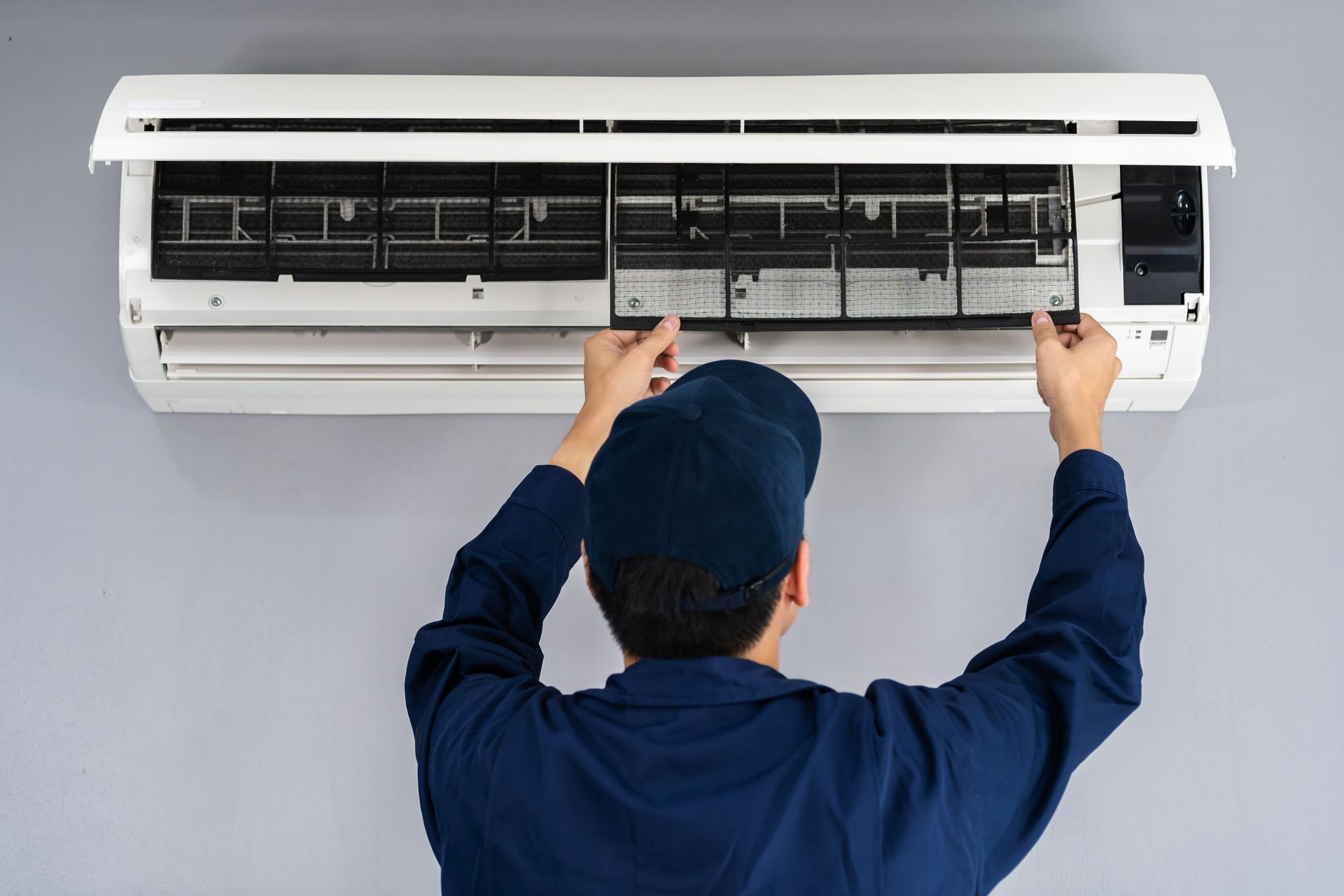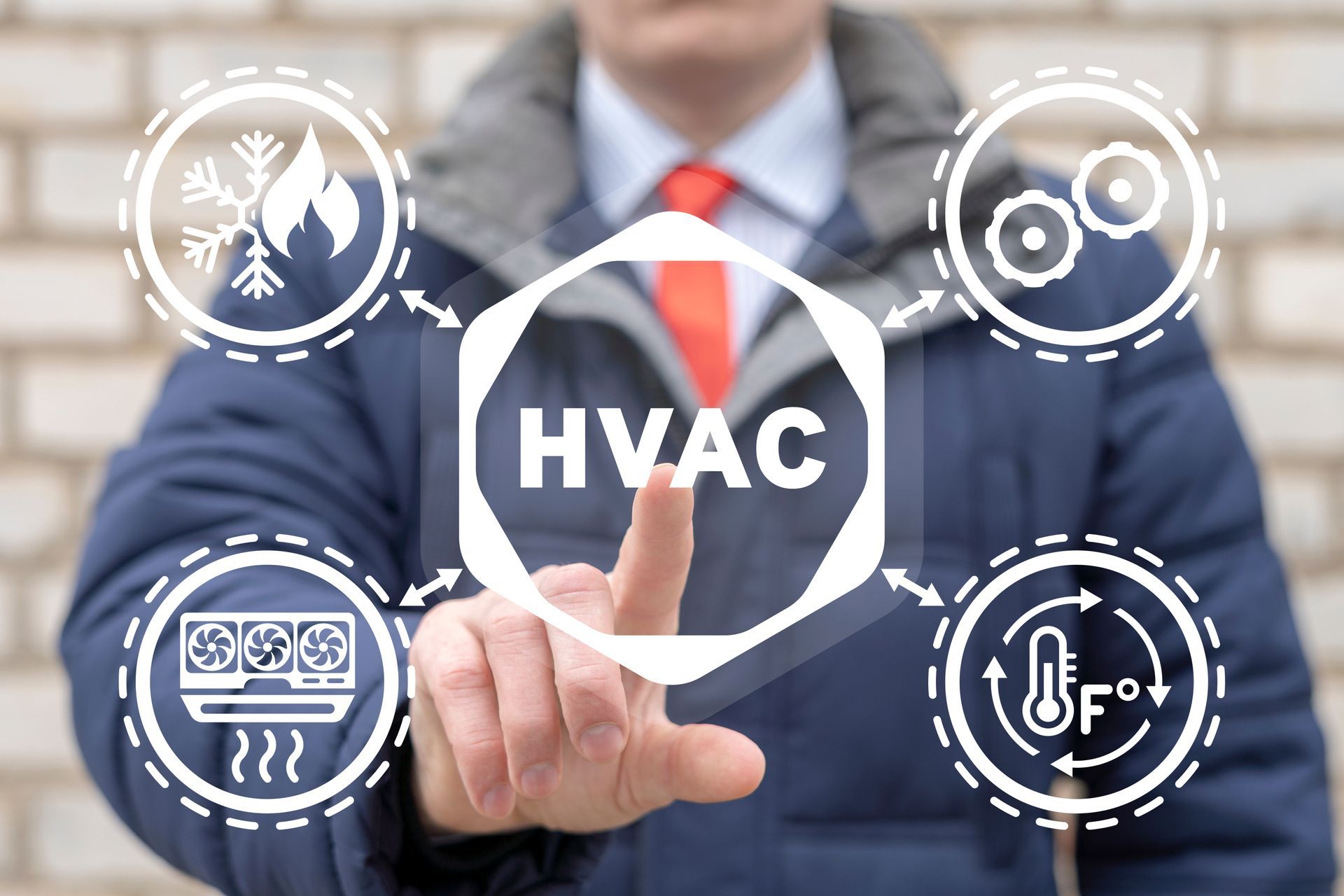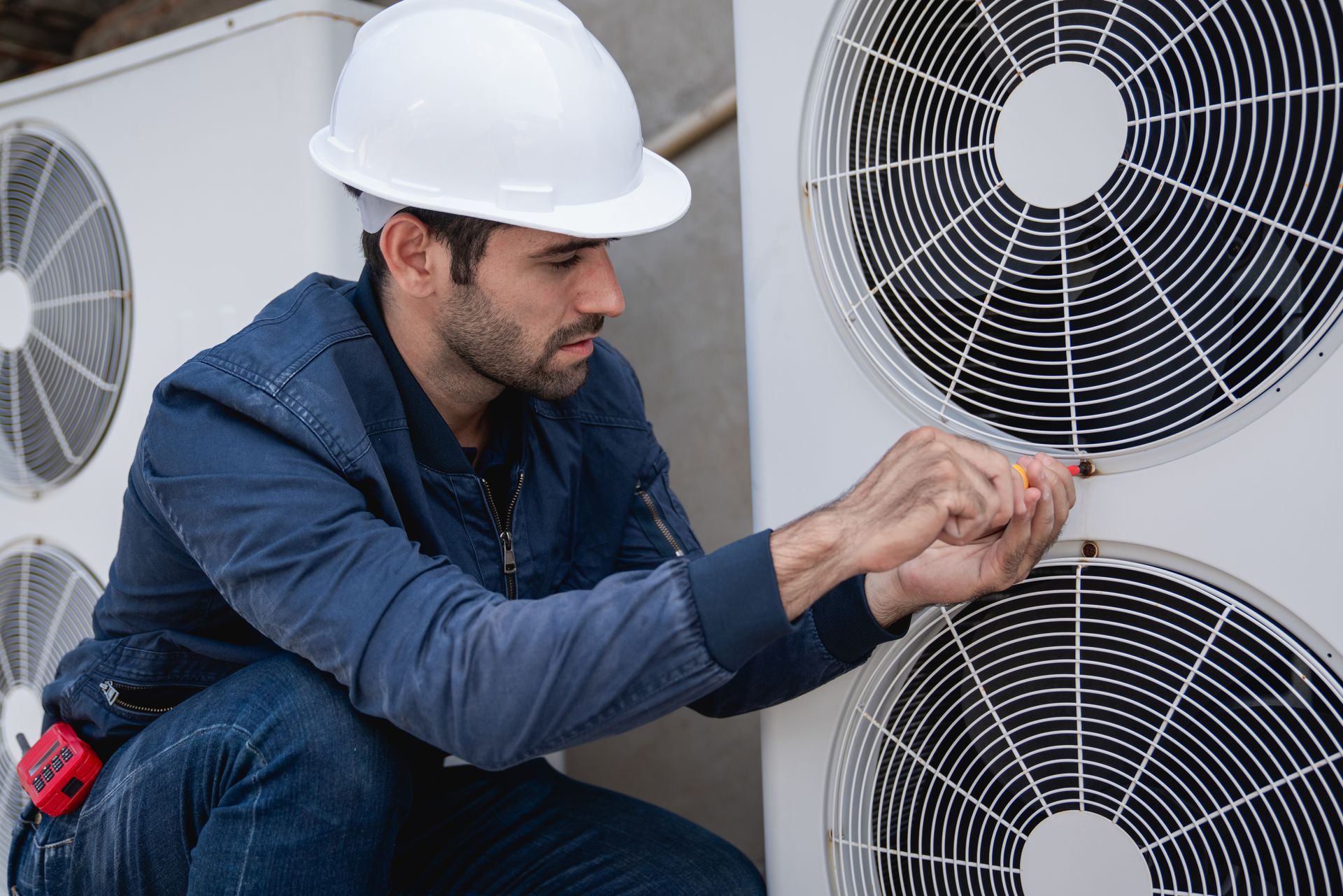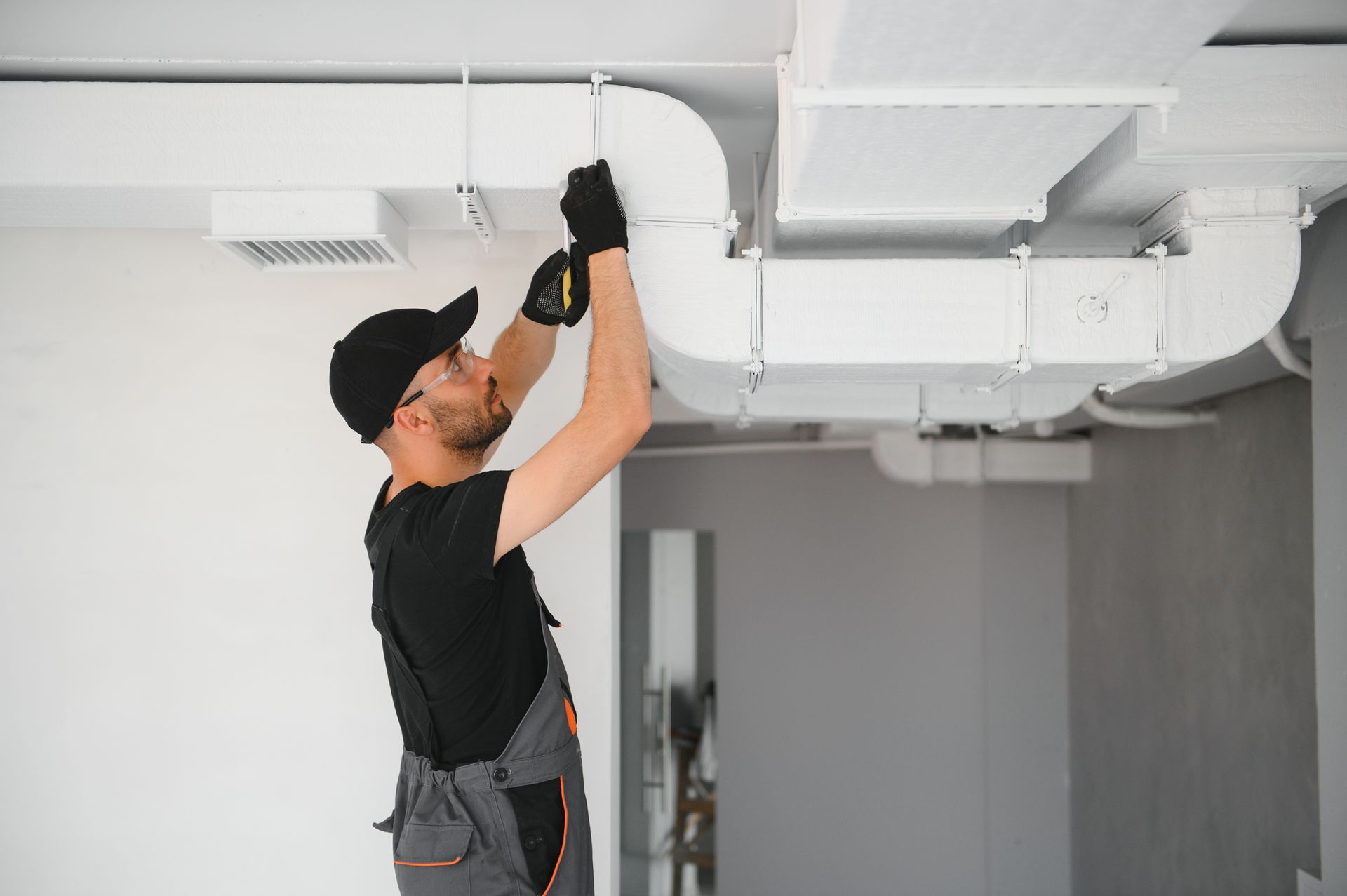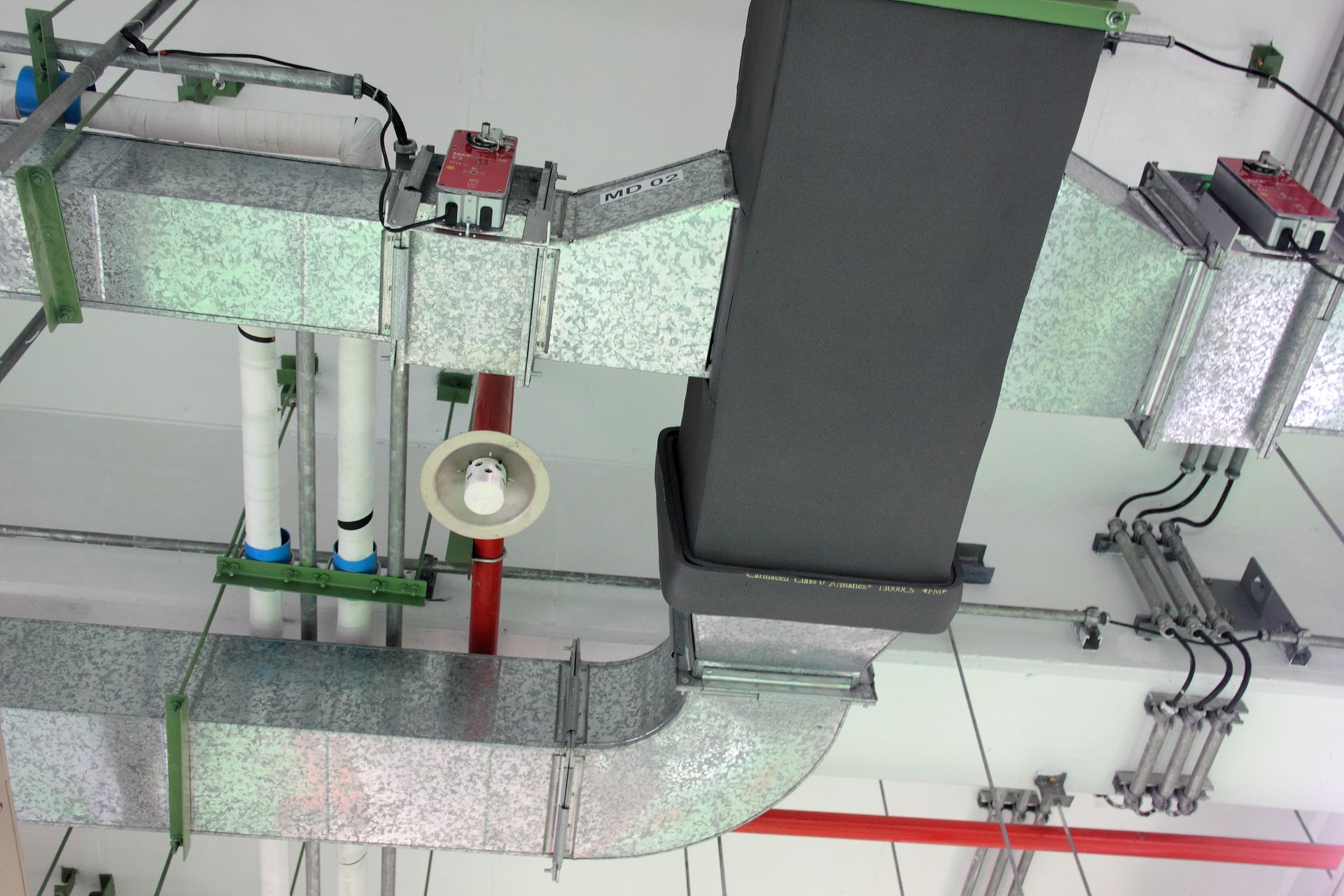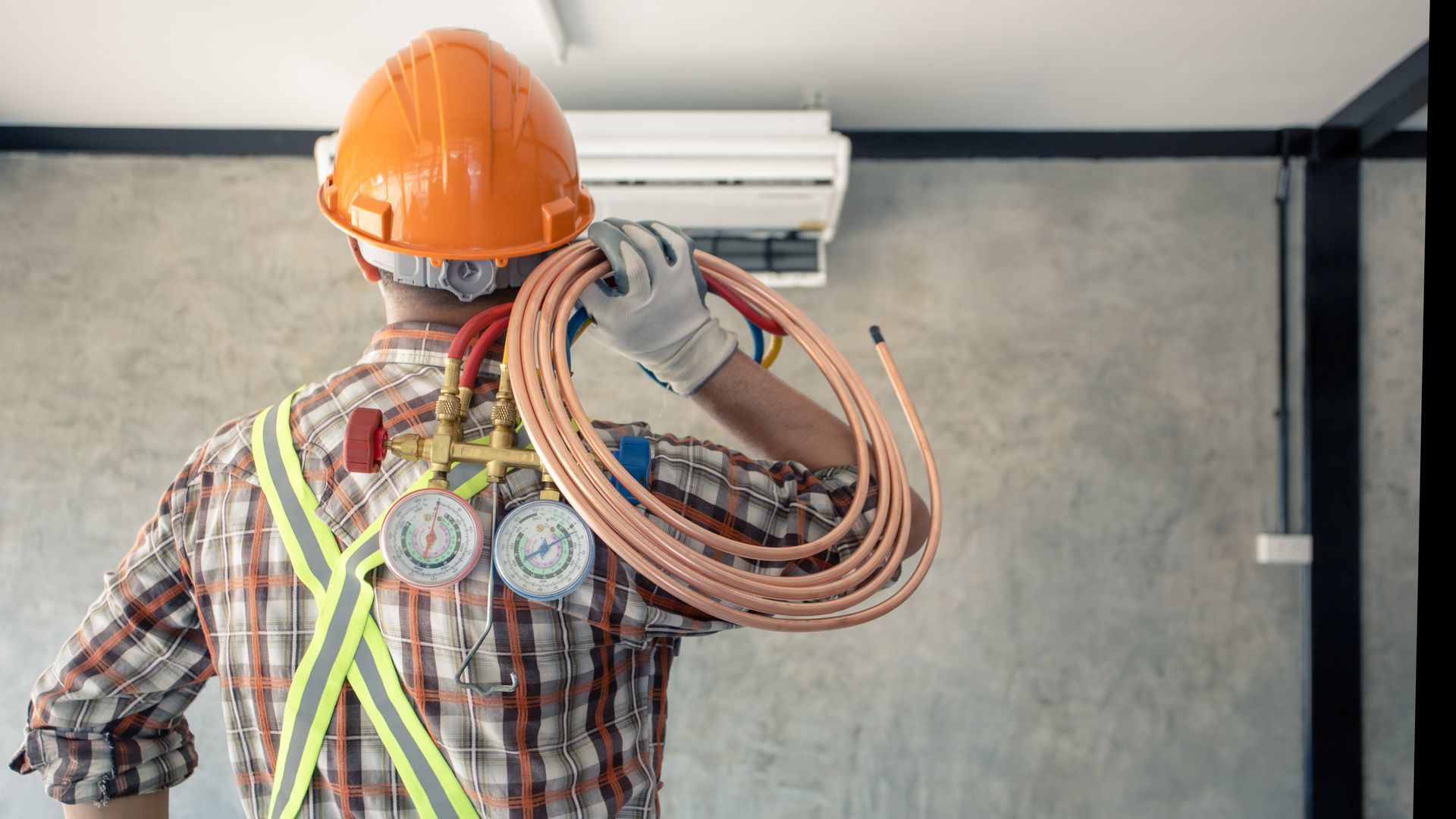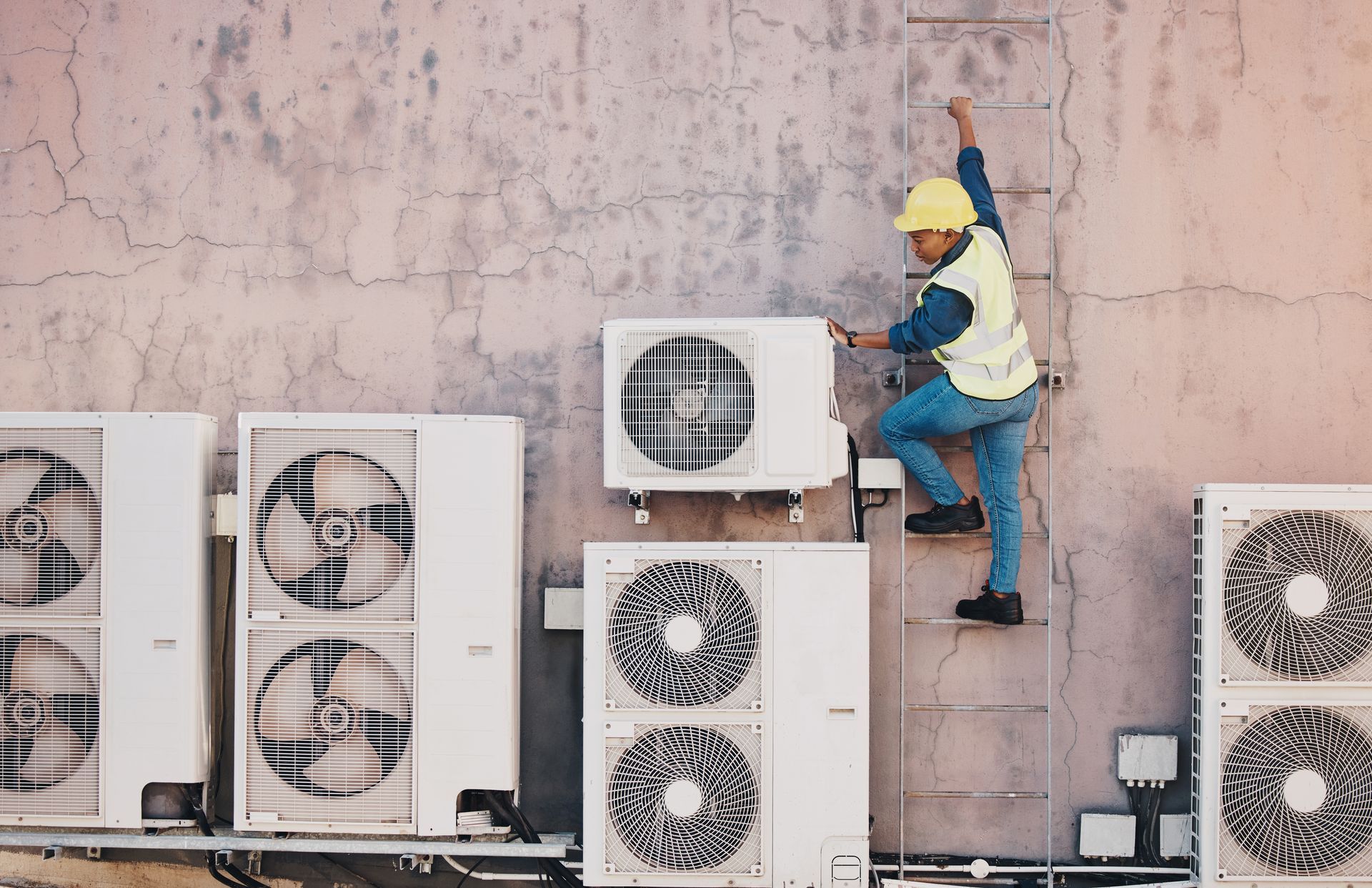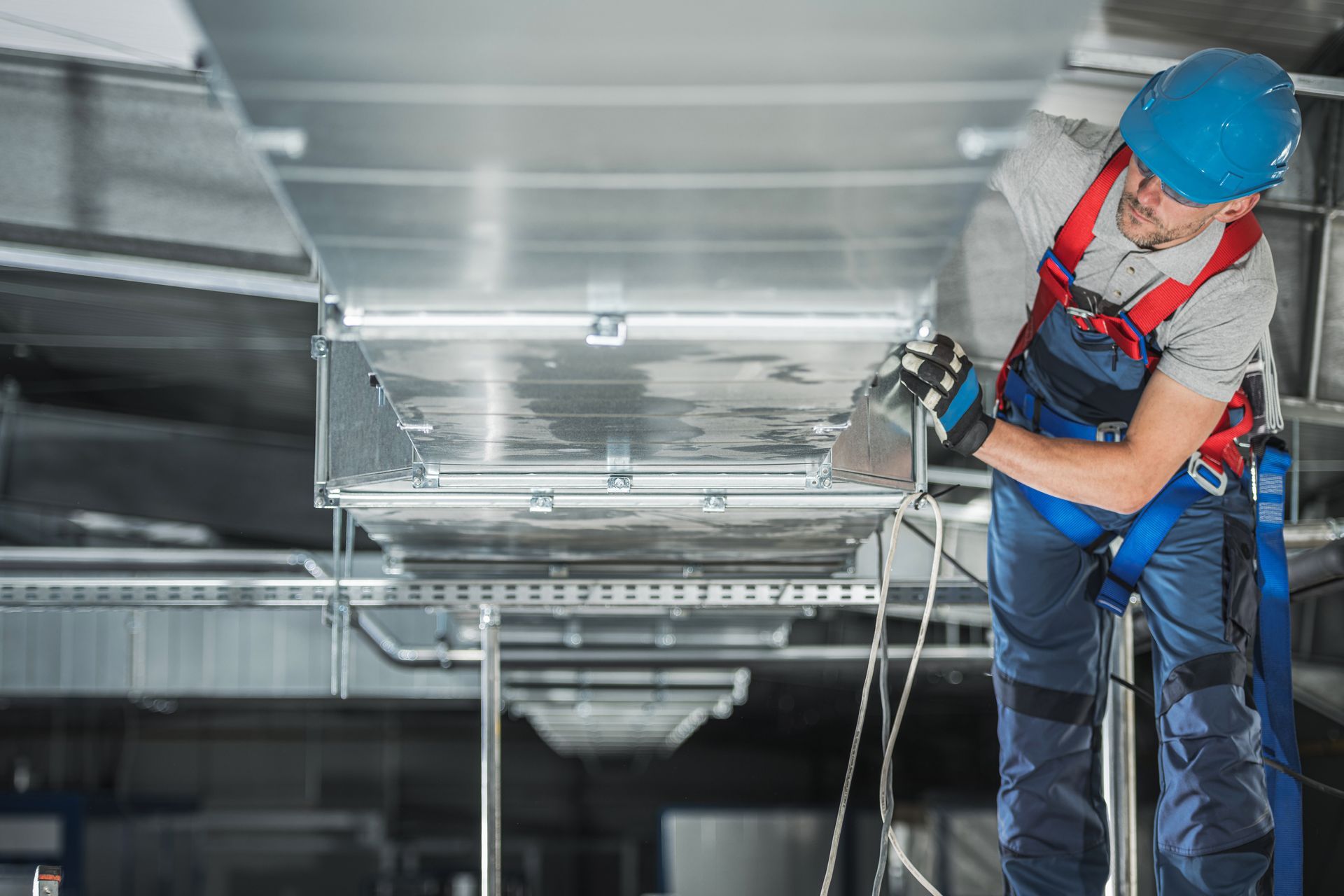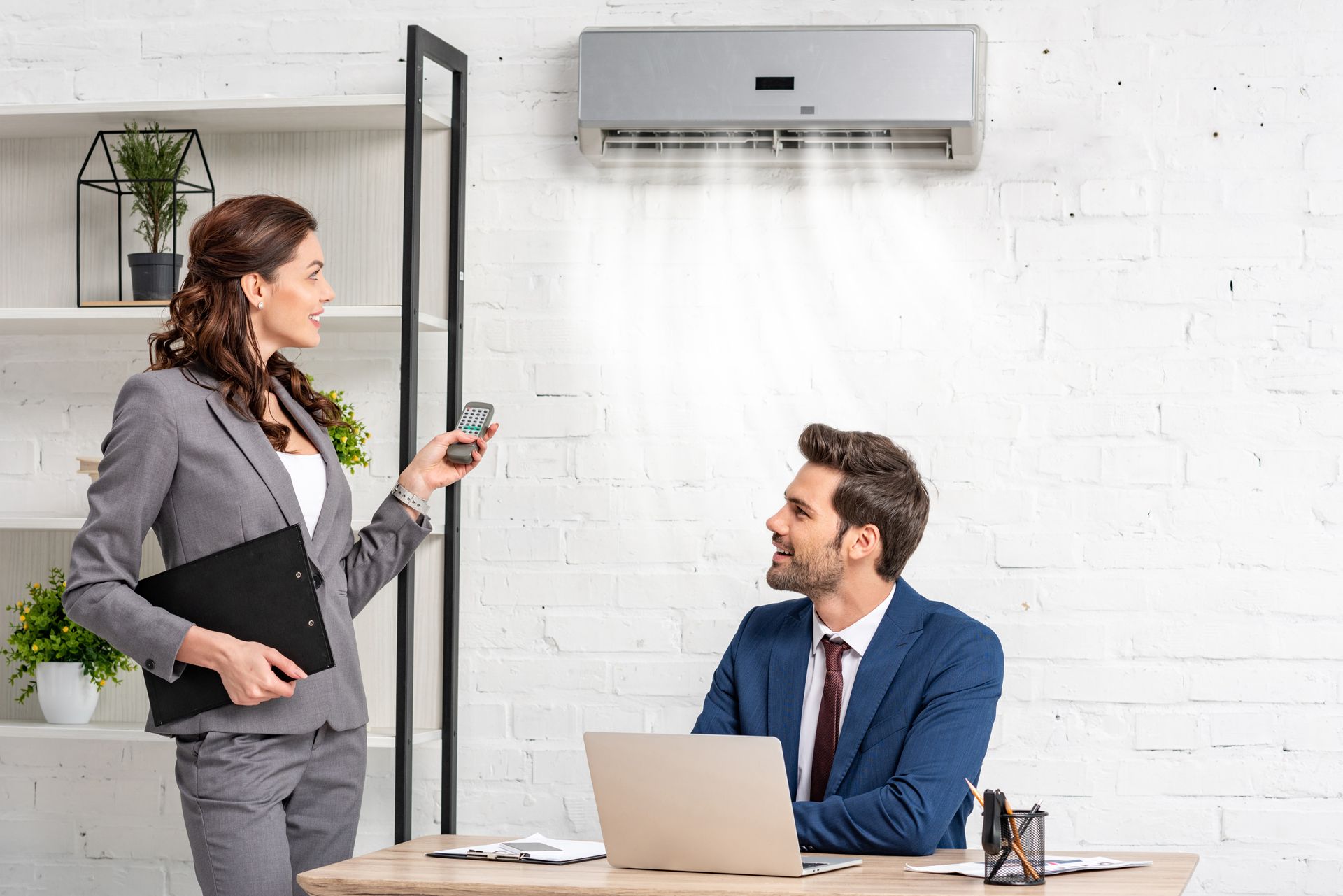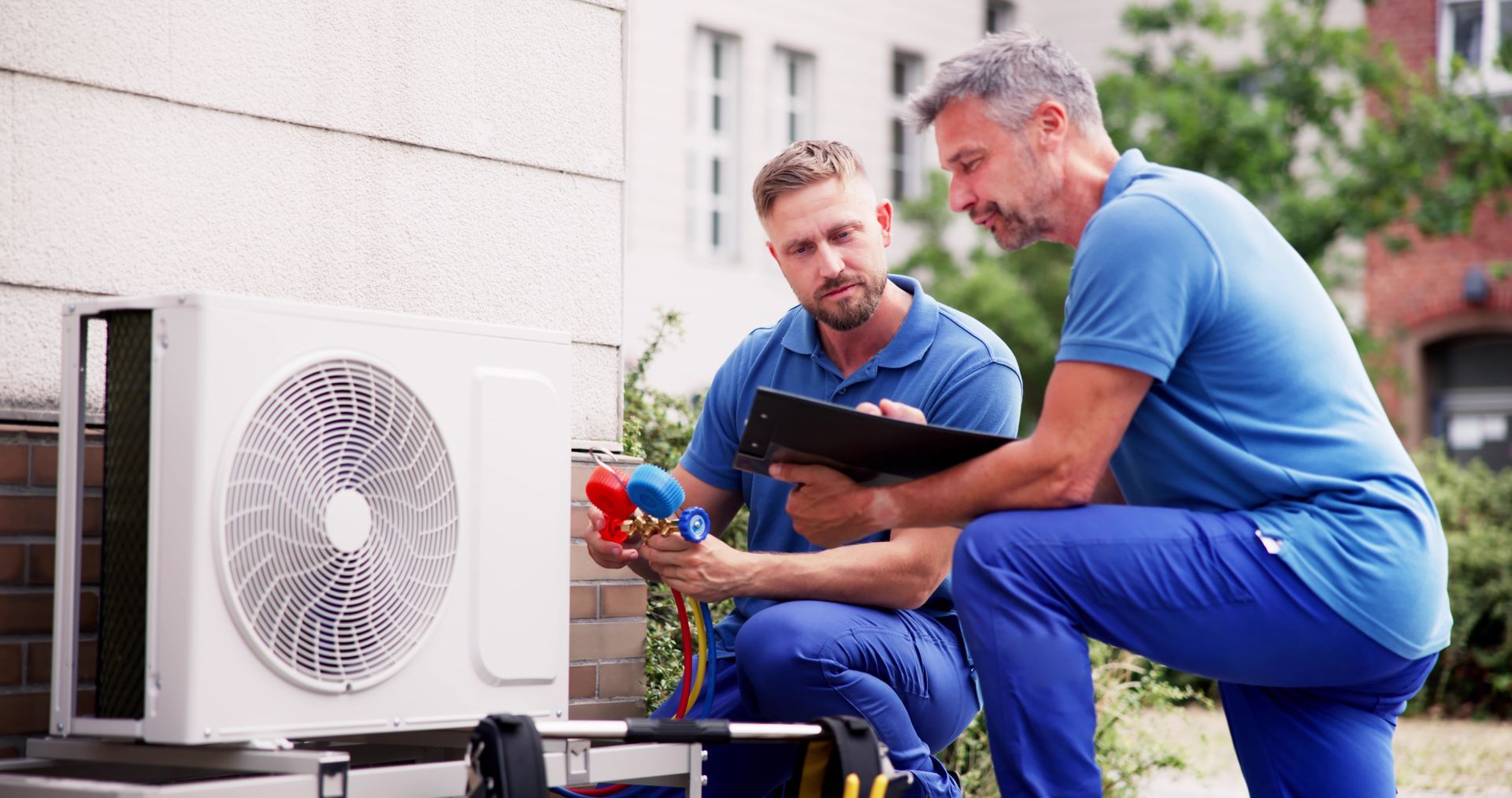Mastering the Essentials of Commercial HVAC: A Comprehensive Guide For Beginners
As a business or commercial property owner, the comfort of your employees, clients, and guests is paramount to the success of your operations. Amidst the plethora of tasks that demand your attention includes managing the Heating, Ventilation, and Air Conditioning (HVAC) systems. A well-functioning HVAC system not only ensures a comfortable indoor climate regardless of the weather outside but also contributes to the energy efficiency and cost-effectiveness of your property.
This guide has been meticulously crafted to simplify the complexities of commercial HVAC systems, equipping you with the knowledge to oversee this crucial aspect of property management with confidence and ease.
Guide Topics
- What is Commercial HVAC?
- Types of Commercial HVAC Systems
- Essential Commercial HVAC Components
- Maintenance of Commercial HVAC Systems
- Common Problems
- Partnering with Commercial HVAC Professionals
What is Commercial HVAC?
Commercial HVAC, which stands for Heating, Ventilation, and Air Conditioning, refers to the system of equipment, methods, and technologies used to regulate the environmental comfort in commercial spaces. These systems are designed to control the temperature, humidity, and air quality to create optimal conditions for human comfort, health, and safety. Unlike residential HVAC systems, commercial units are typically larger, more complex in their functionality and operation, and cater to the unique needs of commercial buildings, which may include varying occupancy levels, greater square footage, and specific industry regulations.
Types of Commercial HVAC Systems
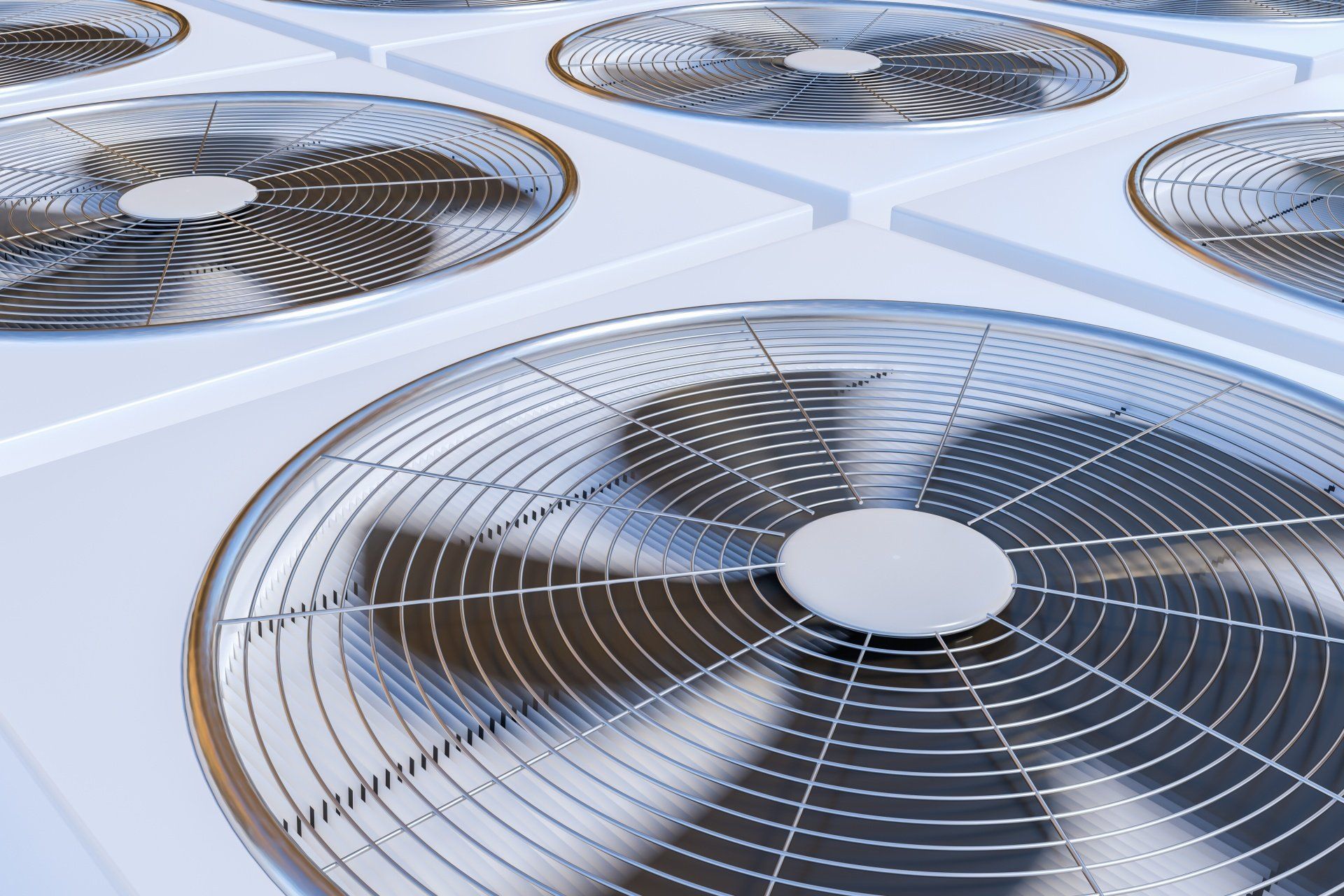
Commercial HVAC systems can be categorized into several types depending on their functionality, size, and design to suit different commercial spaces. The following are the most common types of commercial HVAC systems:
- Packaged HVAC System: This is a self-contained unit that houses all heating, cooling, and air handling components in one cabinet. It is commonly used in smaller applications such as retail stores, restaurants, and small office buildings.
- Split HVAC System:
As the name suggests, this system is divided into two units - an outdoor unit with the condenser and compressor, and an indoor unit with the evaporator coil. The two units are connected by refrigerant lines. The split HVAC system is ideal for medium-sized commercial spaces.
- Roof Top HVAC System: This type of HVAC system is installed on the roof of a building, making it suitable for larger commercial properties. It includes all components in one unit and can be easily accessed for maintenance and repairs.
- Variable Refrigerant Flow (VRF) HVAC System: VRF systems use refrigerant as the medium to cool or heat the air. They are energy-efficient, have individualized zone control, and are ideal for large commercial spaces with varying heating and cooling needs.
Essential Components of Commercial HVAC Systems
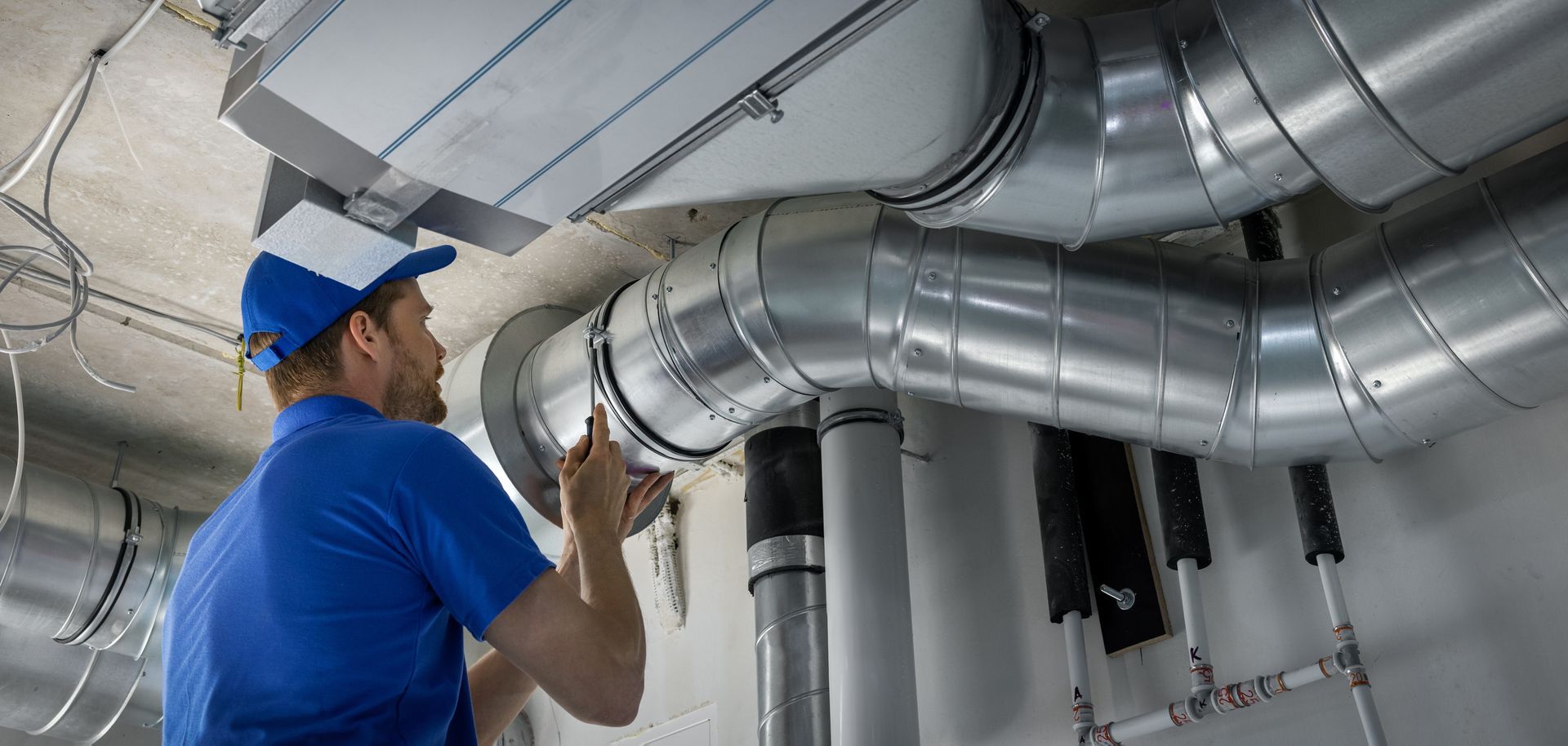
Understanding the core components is crucial to mastering commercial HVAC systems. Each part has a specific function that together ensures the efficiency and proper operation of the entire system. Below we outline the essential components:
- Thermostat: This device regulates the temperature by signaling the HVAC system to turn on and off as needed.
- Air Handler:
This component circulates air throughout the building's ductwork.
- Ductwork: The network of ducts distribute air throughout the commercial space.
- Vents: Air enters the room through these openings, which are strategically spread out to maintain consistent room temperatures.
- Compressor: As part of the outdoor unit, the compressor increases the temperature and pressure of the refrigerant.
- Evaporator Coils: These coils, located in the air handler or attached to the furnace, cool the air as it passes through.
- Condenser Coils: Usually located outside with the compressor, these coils dissipate heat from the refrigerant, allowing it to cool down.
- Refrigerant Lines: These lines carry the refrigerant—a substance for heat exchange—from the indoor evaporator coil to the outdoor condensing unit and back.
- Filters: They remove particulates such as dust and pollen from the air to maintain indoor air quality.
- Drainage System: This system collects and drains the condensation produced by the process of cooling the air.
Each of these components is vital for the HVAC system to function smoothly, and understanding their roles can help in troubleshooting and keeping your system running effectively.
Maintenance of Commercial HVAC Systems
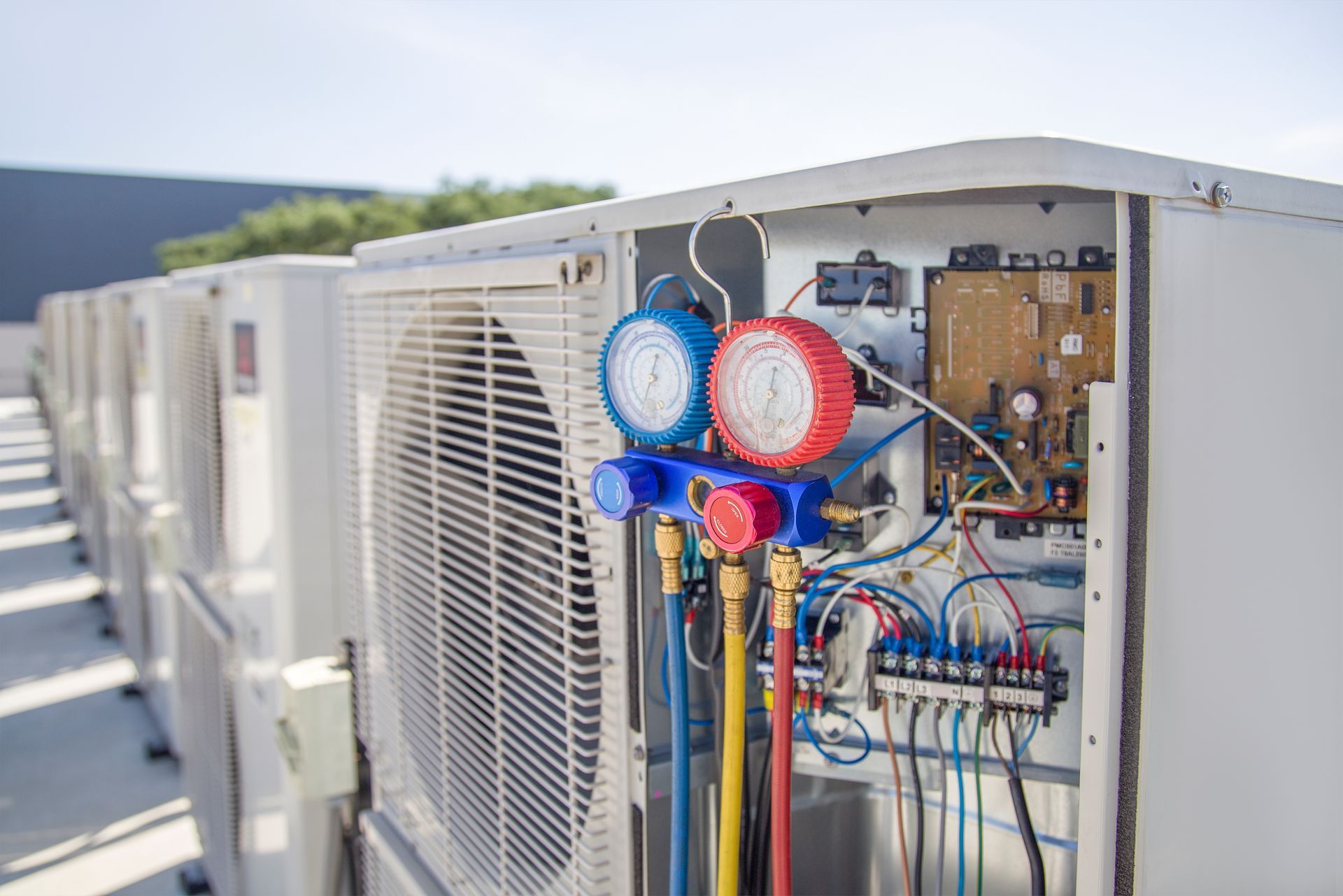
Regular maintenance of commercial HVAC systems is essential for prolonging their lifespan, ensuring their efficiency, and avoiding unexpected breakdowns that could disrupt business operations. A thorough maintenance schedule includes routine inspections, cleaning, and servicing of all HVAC components. It's imperative for property managers to establish periodic check-ups, which often involve:
- Filter Replacement: To ensure air quality and system efficiency, replace the filters on a regular basis, typically every three months, or as required by the system's usage and environment.
- Duct Cleaning: Removing debris and dust from the ductwork should be done annually to maintain air flow and prevent potential health issues.
- Inspecting Refrigerant Levels: Refrigerant levels must be checked to ensure the system is cooling effectively. Any leak must be repaired immediately to avoid system damage.
- Calibrating Thermostat: Regular thermostat calibration ensures accurate temperature control and system efficiency.
- Checking and Tightening Electrical Connections: Loose connections can lead to unsafe operation of the system and reduce the lifespan of its components.
- Lubricating Moving Parts: Adequate lubrication reduces friction in motors and bearings, preventing overheating and prolonging the system's life.
- Inspecting the Condensate Drain: The condensate drain must be checked to prevent water damage and elevated humidity levels.
- Routine Professional Inspection: A certified HVAC technician should inspect the system at least twice a year to diagnose any potential issues and perform complex maintenance tasks.
Special attention should be given to the seasons, with some tasks being more relevant in preparation for winter heating requirements or summer cooling demands. A preventative maintenance contract with a reputable commercial HVAC service provider can be a cost-effective way to keep your system in top condition and prevent costly repairs or replacements.
Common Problems with Commercial HVAC Systems
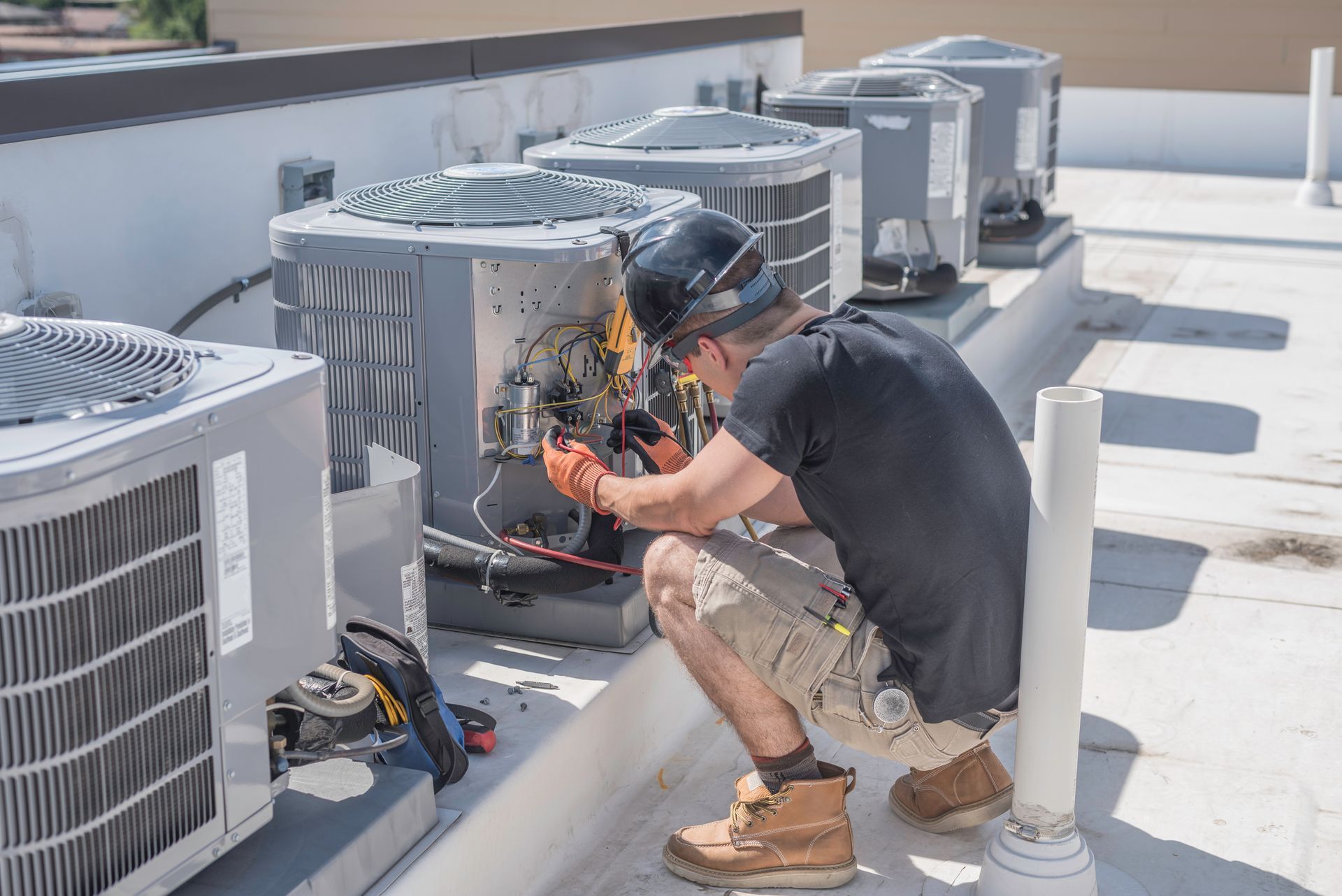
A robust understanding of the common setbacks in commercial HVAC operations is essential for swift diagnosis and effective resolution. One frequent issue is inconsistent heating or cooling, often stemming from leaky ductwork, malfunctioning thermostat, or imbalanced airflow. Another pervasive problem is unusual noises emanating from the system, which could indicate mechanical problems like loose parts or obstructions. Elevated energy bills often suggest inefficiency within the HVAC system, potentially due to aging components or the need for recalibration. Furthermore, poor indoor air quality can be a signal of dirty filters or inadequate ventilation, emphasizing the importance of routine maintenance to ensure a healthy commercial environment. Regular inspections can prevent these issues from escalating, ensuring that the HVAC system functions optimally with minimal interruption to daily operations.
The Advantage of Partnering with a Commercial HVAC Company
Partnering with a seasoned commercial HVAC service provider offers unparalleled benefits. Such companies bring technical expertise, prompt service, and access to the latest technology and efficient systems. This partnership ensures that commercial HVAC systems are not only running at their best but are also compliant with current regulations and energy-efficiency standards. A professional commercial HVAC partner can offer a tailored maintenance plan, which minimizes downtime by preempting breakdowns and optimizing the system's performance, ultimately leading to cost savings in energy consumption and repair bills. Furthermore, HVAC specialists can often extend the life of the equipment through expert care and improvements, maximizing your investment. Establishing a relationship with a trusted commercial HVAC company translates to peace of mind, knowing that your system is cared for by experts dedicated to maintaining a comfortable, healthy, and productive environment for your business.
If you're located in Western MA and in need of top-tier commercial HVAC services, look no further than McCormick Allum. With a legacy of quality that stretches back to 1888, our team of professionals is equipped to ensure that your HVAC system operates at peak efficiency. Don't settle for anything less than the expertise and dedication McCormick Allum offers. Contact us today to tailor a maintenance plan that suits your business needs and enjoys uninterrupted comfort and performance. Trust in tradition. Trust in expertise. Trust McCormick Allum for all your commercial HVAC needs. Call now (413) 737-1196 to schedule your consultation.
